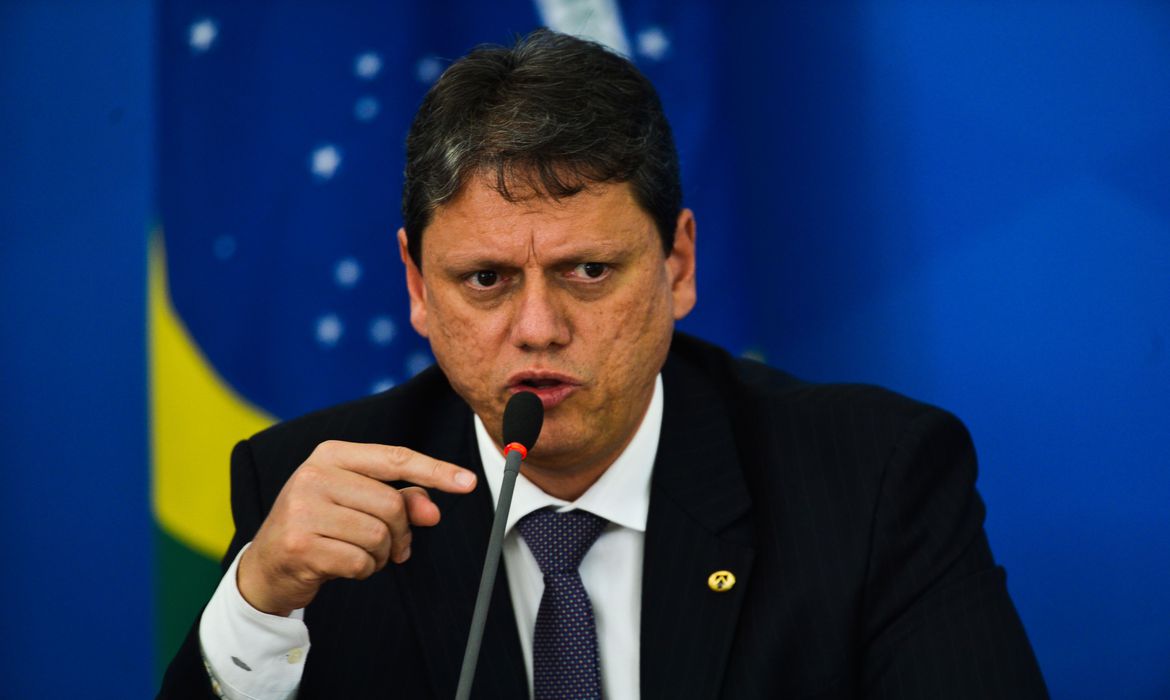RIO DE JANEIRO, BRAZIL – The Minister of Infrastructure, Tarcísio de Freitas, said yesterday, July 28th, that the overcoming of obstacles involving workers’ rights, achieved with the labor reform, has already been noticed by foreign investors and, with the attractive asset portfolio for auctions in the country; the trajectory of fiscal recovery; and the drop in the basic interest rate (SELIC), represents a set of factors that place Brazil in the investors’ sights.

Freitas said that this whole scenario will allow over 100 government assets tp be sold at auctions by the end of the year; he stressed the concession projects for the BR-116/101 highways (the Nova Dutra, between Rio de Janeiro and São Paulo) and BR-163, in Pará, and the West-East Integration Railway, in addition to the sixth round of concessions for 22 airports.
“If we place on a graph, countries of continental dimension, above five million square kilometers (km²), with a massive population, above 200 million inhabitants, therefore, with a large consumer market, and GDP [Gross Domestic Product] above US$1 trillion (R$5 trillion), we will see that in the intersection of this diagram there will be only three countries: Brazil, China, and the United States,” Freitas said while participating in the ‘Invest in Brazil Infrastructure 2020’ webinar, promoted by Apex-Brasil. “This, in itself, is already drawing the attention of foreign investors.”
“And there is more: the trajectory in which we find ourselves, having experienced a severe crisis; and, from there, the structural change where the main risks perceived by investors were attacked, such as the labor issue,” the Minister added, reiterating that, with the reform, the country succeeded in overcoming the obstacles that involved labor rights. “There was an extraordinary decrease in labor lawsuits after the reform.”
Attractiveness
Still according to the Minister, the scenario became more attractive with the approval of the spending ceiling, which initiated a fiscal recovery trajectory, and with the Welfare reform. In addition, the drop in interest rates continued, with the SELIC rate at 2.25 percent, which is “extraordinary” for investments in infrastructure. “We have the largest concession program in the world, which will bring an avalanche of private money to our economy, transforming our infrastructure in the coming years,” Freitas said, recalling that Brazil also has “a track record of respecting contracts,” which is well regarded by investors.
According to Freitas, the country has learned how to structure its concessions and, as a result, today it probably has “the most sophisticated structure in the world, in terms of risk-sharing.” As an example, he mentioned the exchange risk, a subject that has always been “hidden under the carpet”, despite seeming to be a concern for investors.
To overcome this issue, the Minister said the strategy adopted at the auctions was the “variable grant,” a measure that, according to him, cushions exchange rate fluctuations in situations where investors need to borrow money abroad. “We are going to abate the loss with eventual exchange depreciation from the variable grant value or add the gain with an eventual appreciation. We will work with debits and credits in a graphic account until the end of the financing period, leaving a period of time for the settlement of accounts,” explained the Minister.
Source: Agência Brasil

